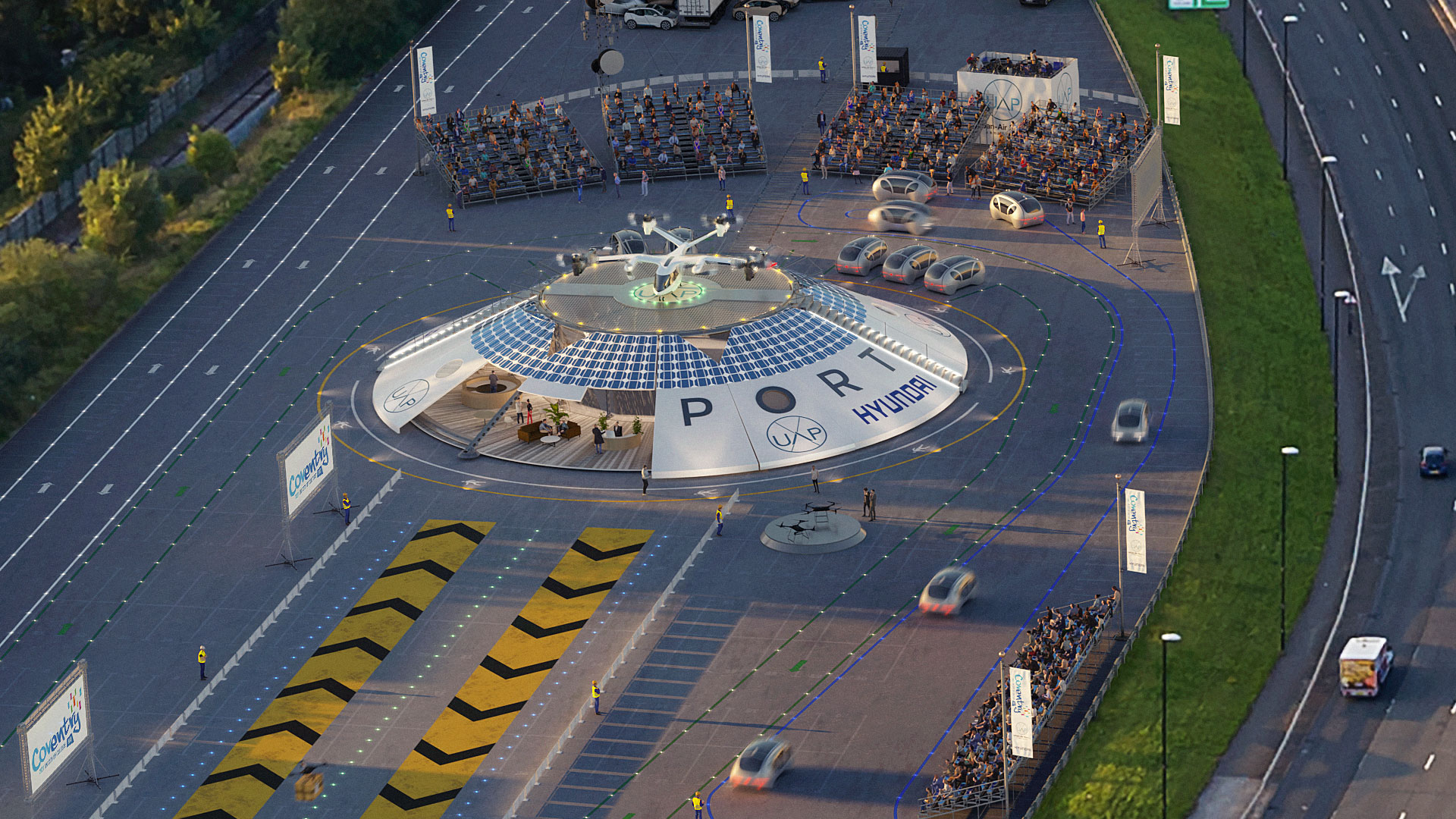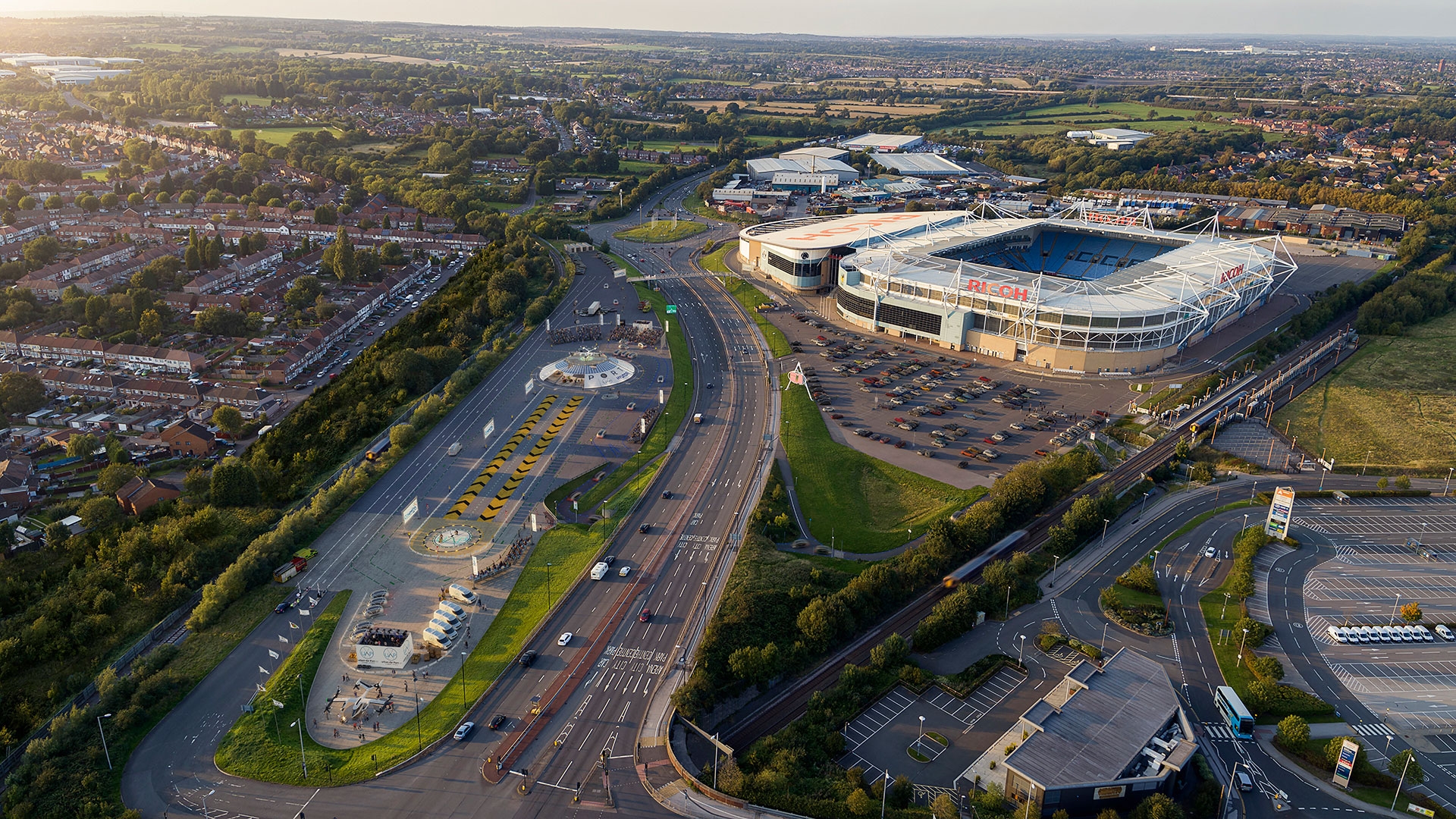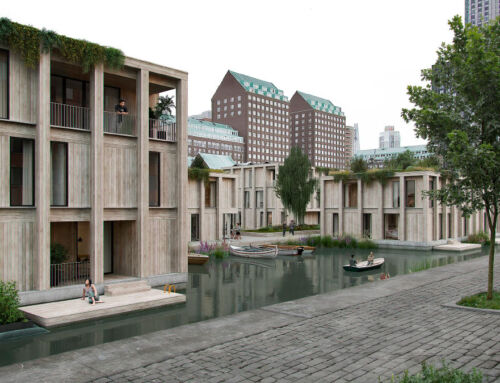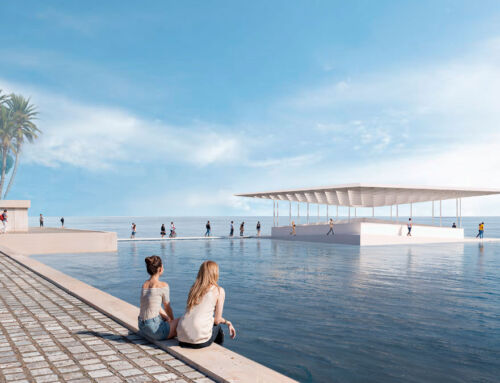The future is already here. The company Urban Air Port has chosen Coventry, UK, to build the world’s first drone airport: Air-One. To carry out its project, it has received £1.2 million from the Research and Innovation’s Future Flight Challenge fund, a programme financed through the British Government’s Strategic Industrial Challenge, with £125 million of public money and a further £175 million expected from private industry. The project, beyond being one of the first steps towards the air mobility of the future, is interesting because it represents an example of modular architecture.
To build Air-One, Urban Air Port is partnering with Hyundai, which is currently developing a passenger-carrying drone, and Coventry City Council and Coventry University. “As we move forward with our electric vertical take-off and landing (eVTOL) aircraft programme,” says Pamela Cohn, Chief Operating Officer of Hyundai Motor Group’s Urban Air Mobility Division, “the development of a supporting infrastructure is imperative; She adds, “Air-One is a unique project that will help lead the development of a robust, accessible and intermodal infrastructure network for the mobility of the future” and create “community opportunities through safe, affordable and human-centred mobility solutions”.
Thanks to its innovative design and modular architecture, the Air-One can be installed “in a matter of days”, with zero net carbon emissions, and has the ability to operate completely off-grid. They can be easily relocated to other sites as required, or even be used to support emergency management in the event of a disaster. Shaped like a truncated cone, it is envisaged that the interior will contain rooms for passenger comfort as well as aircraft maintenance.
According to Gary Cutts, Director of Research and Innovation’s Future Flight Challenge, “Urban Air Port has the potential to revolutionise cities around the world, to make them better connected and cleaner, and to accelerate our green economic recovery“. In fact, to meet global demand, the company plans to develop more than 200 such airports over the next five years. Several cities in the UK and around the world have already expressed interest.
For a more detailed understanding, we invite you to take a look at the presentation of the project here video:







